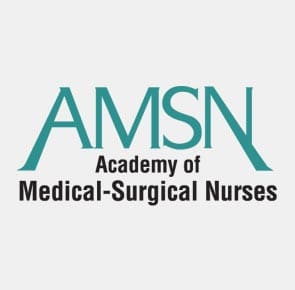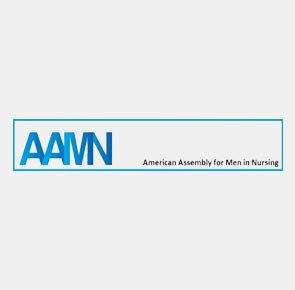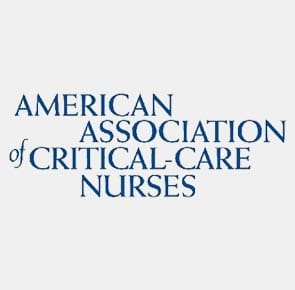What Does Being an LPN Entail?
An LPN to RN program allows you to advance yourself professionally. And, while you do have to return to school to achieve this goal, you won’t be in school for very long and the returns you will receive in increased income and job responsibility will be more than worth it.
As a licensed practical nurse (LPN), you already have many responsibilities to handle. Care is most often given to patients under the supervision of an registered nurse (RN) and doctors.
You’re most likely to work in a hospital or clinic, handling duties that staff nurses have given to you, which includes:
Read More- Surgical Assistant
- Wash, shave, and sterilize a surgical area before surgery
- Provide general nursing care in the hospital
- Sterilize an operating room and instruments before a scheduled surgery
- Administer medication and note its effects on patients, to include negative effects
- Check vital signs, prevent infections from spreading or causing an infection in other patients; apply sterile dressings; monitor nutritional intake
- Provide pre- and post-operative care to your patents
What Does Being an RN Entail?
Registered nurses find employment in many medical settings, including hospitals. If this is what you plan to do, you could also work in an assisted living facility, schools, patients’ homes, or other settings.
You may even choose to specialize in one specific area. Your duties may include:
Read More- Consulting with medical providers
- Monitoring patients
- Overseeing licensed practical nurses (LPNs) working within the facility
- Educating patients and family about medical conditions and treatments
- Administering medications
- Managing patient records
- Working in a leadership position (nurse manager) or earning your MSN
- In a hospital, taking reports from the previous shift
- Dealing with medical emergencies
Depending on where you work, your days and responsibilities will vary from setting to setting. The level of care your patients need will dictate what kinds of duties you’ll handle each work day.
Featured Online Programs
How to Earn an RN Certification from an LPN
Typical LPN to RN Program Prerequisites
 When you have been admitted to an LPN to RN bridge program, you may have to take care of a few prerequisite classes; these are classes that are required to be completed before you begin the “meat and potatoes” of your nursing classes and finally become an RN.
When you have been admitted to an LPN to RN bridge program, you may have to take care of a few prerequisite classes; these are classes that are required to be completed before you begin the “meat and potatoes” of your nursing classes and finally become an RN.
While you may have been admitted into a program so you can take program-specific courses, you won’t be fully enrolled until you finish those prerequisite classes. For instance, you may need to take:
- Speech and/or Social Science
- Microbiology
- Physiology
- Chemistry
Academic Standards for LPN to RN Bridge Programs
Every school with an LPN to BSN (Bachelor of Science in Nursing) or LPN to RN program, otherwise known as RN bridge programs, will have several academic standards that you will be required to meet. Depending on the school you’ll be attending, these may include:
- Complete any equivalent transferable prerequisite general education classes, such as chemistry
- Graduate from an accredited nursing school within the U.S.
- Take your science, anatomy, and physiology courses
- Send in official transcripts that show completion of all requirements and any certifications that have been conferred
- Have a specified number of documentable LPN experience hours, especially if your graduation was more than three to five years ago
- Have a licensed practical nurse's (LPNs) license that is not encumbered in the state where you live
Exam and Experience Needed
 To successfully get into LPN to RN programs, you will be required to have some nursing experience. The amount and level of nursing will vary from program to program. It is required because you will be using your experience as an LPN to both get into the program and learn the material in your classes. You will gain experience in your clinical that will help you once you become a registered nurse (RN)
To successfully get into LPN to RN programs, you will be required to have some nursing experience. The amount and level of nursing will vary from program to program. It is required because you will be using your experience as an LPN to both get into the program and learn the material in your classes. You will gain experience in your clinical that will help you once you become a registered nurse (RN)
You may also be required to take a PN-ADN Mobility Exam as one of the requirements of getting into a bridge program. One school of nursing strongly encourages its LPN to RN program applicants to take this exam before they complete their application requirements. To prepare for the exam, you’ll need to go through old course text books—a review book is not currently available.
How do Clinical Hours Work?
You may have no flexibility for scheduling your clinical hours. Instead, you will take them when they are scheduled. If there are a number of sites where your clinical hours have been set up, then you may have a choice of settings. Ideally, you may be placed in a hospital setting. If you don’t have a hospital in your community, you may need to commute to the one nearest to you.
Once you begin your clinical experience, expect to set aside between 16 and 20 hours weekly so you can participate fully. Your nursing program administrators may decide to add additional hours and days so student achievement and student learning objects for clinical experience will be met.
All Bridge Program Options
LPN to ADN
In this program, you will be able to anticipate continued professional growth as you learn in your classes. This bridge program will take you from a certificate to an associate degree, providing access to greater responsibility and higher levels of education.
Where Programs are Found:
Community colleges, Nursing colleges, four-year colleges, and in online formats.
Required Credit Hours:
By the time you are ready for graduation, you will have earned 99 quarter credit hours.
Length of Program:
Because you have already completed your LPN, you will earn your Associate Degree in Nursing (ADN) in 15 to 18 months.
Example Courses:
- LPN/LVN to RN Role Transition
- Principles of Pharmacology
- Concepts of Mental Health Nursing
- Advanced Concepts of Medical-Surgical Nursing
LPN to RN
LPN to RN programs are an way for the LPN to quickly earn their Registered Nurse license. Those who are found to be qualified come into the second semester of the program and complete their ADN in just three semesters if they take full-time nursing classes.
Where Programs are Found:
Community colleges, Nursing colleges, four-year colleges, and in online formats.
Required Credit Hours:
Around 67 semester credit hours required
Length of Program:
If you take a full-time class schedule for each semester, you should finish in 18 months
Example Courses:
- Pharmacology
- Lifespan Psychology
- Medical-Surgical II
- Professional Practice
LPN to BSN
In this program, you will be taking a big jump from your LPN to earning your Bachelor of Science in Nursing (BSN). It is intended for those nurses who are already working as licensed practical nurses (LPNs) and want to increase their educational base, income, and opportunities as registered nurses.
Where Programs are Found:
Community colleges, Nursing colleges, four-year colleges, and in online formats.
Required Credit Hours:
This program takes 60 credit hours (three semesters) to complete. Thirty credits are nursing advanced standing hours earned by exam; the remainder are earned by successfully completing this program.
Length of Program:
If attending full-time, you should be able to finish this track in 2-3 semesters. If attending part-time, you’ll likely need 4 or more semesters to complete all required coursework.
Example Courses:
- Health Assessment
- Nursing Research
- Human Experience in Acute & Chronic Illness II - Career Mobility
- Contemporary Professional Nursing
Careers & Salaries for RNs
The difference in pay for an LPN and an RN is striking. While the LPN earns an excellent annual salary with an average of $41,600, the RN’s annual average pay is $63,618. If you are contemplating this move, you’ll want to keep this pay differential in mind. You’ll also see your daily work responsibilities become more challenging, since, as an RN, you will supervise LPNs and other nursing levels as they carry out their daily duties.
Find Online LPN to RN Schools
In your mid-career years as an LPN, you will be earning $42,000; during your late-career years you could earn as much as $57,000. If you are an RN in your mid-career years, your annual median salary will be $64,000 while your later career years may earn you as much as $90,000.
Nursing Salaries by Occupation
This area allows you to see various annual median salaries for different nursing occupations. If you have some goals you want to meet, then an LPN to RN Bridge program may be the path for you.
| Occupation | Early-Career | Mid-Career | Late-Career |
|---|---|---|---|
| LPN | $39,200 | $45,600 | $48,100 |
| Associate Degree in Nursing (ADN/RN) | - | - | - |
| RN: Early career | $56,500 | $67,200 | $72,900 |
| Advanced Practice Registered Nurse (APRN) | $90,700 | $97,700 | $104,800 |
Nursing Occupations:
- Licensed Practical Nurse (LPN):
Your job duties will include giving basic patient care: inserting catheters and changing bandages, monitoring patient health through blood pressure checks, maintaining accurate patient charts, providing basic comfort for each patient like bathing and dressing, discussing the care you provide with your patients and listening to their concerns. - RN:
You will carry out similar duties including assessing patient conditions, observing them and recording what you see, recording medical histories and symptoms, setting up patient care plans, administering medications and treatments, operating and monitoring medical equipment, and consulting with doctors. - Travel Nurse:
You will travel from area to area temporarily, filling in shortages. You may also work in remote areas lacking medical facilities. - Advanced Practice Registered Nurse (APRN):
You may work as a nurse-midwife, nurse anesthetist, or nurse practitioner. At this level, your knowledge and duties are much more advanced. You will perform physicals, create patient care plans, order and perform diagnostic tests, diagnose some health problems, analyze test results, make treatment changes, and consult with doctors.
Important Questions to Ask (FAQ)
How Much Does an LPN to RN Program Cost?
Total costs for this level of bridge program vary from college to college. When you add in all of the associated costs, such as application fees, physical exams, immunizations, and background checks, the final bill will be a different total from just your tuition fees.
At one community college, your tuition per semester will range from $1,000 up to $1,200. If you are looking at a per-credit rate, in-state students pay around $100; out-of-state students may pay around $390.
What Types of Schools Offer These Programs?
You are more likely to find LPN to RN programs for nursing majors in colleges. Because you begin with the LPN (or another basic nursing program) at a community college, it makes the most sense to continue on to a registered nurses program in community colleges. In addition, RNs can become registered nurses once they have earned their ADN or BSN, that's their associate degree in nursing or bachelor's degree in nursing.
How Many Students Graduate On Time, in 12 to 18 Months?
As of 2018, only 26% of students who have enrolled in community college will graduate with either their associate’s degree or certification. Making this problem worse, only 33% of these students will successfully transfer to a four-year institution within six years. Of those who do transfer, only 42% will complete their bachelor’s degree within six years.
The national trend toward longer time frames when completing a degree means that most degrees are taking longer and longer to complete. However, these bridge degrees are mostly well-contained, straight-forward programs meant to help you complete the necessary courses on time. Your chances of earning your degree on time are better with these programs than they are with most.
What Kind of Accreditation Should the Program Have?
 School programs voluntarily seek accreditation. However, this recognition is important enough that the lack of accreditation in your nursing program can lock you out of receiving federal financial aid or being eligible to sit for vital nursing exams that provide you with licensure. These incluse the test of essential academic skills (TEAS) and the NCLEX-RN exam. As you are exploring the different LPN to RN programs, or an LPN to BSN program, make looking for and finding accreditation one of the first things you do.
School programs voluntarily seek accreditation. However, this recognition is important enough that the lack of accreditation in your nursing program can lock you out of receiving federal financial aid or being eligible to sit for vital nursing exams that provide you with licensure. These incluse the test of essential academic skills (TEAS) and the NCLEX-RN exam. As you are exploring the different LPN to RN programs, or an LPN to BSN program, make looking for and finding accreditation one of the first things you do.
You should find one of these accreditors associated with your nursing program:
- Accreditation Commission for Education in Nursing (ACEN)
- The National League for Nursing
- Commission on Collegiate Nursing Education (CCNE)
Software, Technology and Skills Needed
During your bridge program, you should develop a double set of skills. Some of the technical skills you will be doing every day, multiple times a day. There are also your clinical skills, which include taking vitals, giving CPR, and monitoring signs of illness. You will learn how to give prescribed medications to your patients, take charting notes so your supervising nurse and doctors will see what is happening with your patients, and help to sterilize surgical equipment and an operating room before surgery.
During their time in nursing school and your clinicals, nursing students will also learn how to deliver safe nursing care, so they reduce the risk of harm to patients and their fellow nurses, deliver patient-centered care, demonstrate compassionate behaviors, and develop therapeutic relationships with their patients.
You will also learn how to develop and use clinical judgment (using clinical reasoning, evidence-based practice, and the nursing process) and how to collaborate and work with other medical professionals so that you, as a member of a professional team, will be able to deliver expected outcomes of care.
Scholarships
-
Geraldine “Polly” Bednash Scholarship
Amount: $5,000 (2 Awards)
Deadline: January 31, April 30, July 31, October 31Two $5,000 scholarships are available for top nursing school applicants four times per year. Must maintain a minimum of a 3.2 GPA in your current program or last school attended. You must also be admitted or enrolled in a baccalaureate or higher program at an AACN member school connected to CastleBranch.
-
Daughters of the American Revolution/Caroline E. Holt Nursing Scholarship
Amount: $2,500 (3 Awards)
Deadline: VariesOne-time, $2,500 scholarships are awarded to three students with demonstrated financial need. Must be accepted or enrolled in an accredited school of nursing.
-
SGNA RN Advancing Education Scholarship
Amount: $1,000 (Part-time); $2,500 (Full-time)
Deadline: July 31Part-time students may be awarded $1,000; Full-time students, $2,500. This scholarship is reserved for RNs working in gastroenterology and pursuing their BSN, MSN, or Ph.D. Must be an SGNA member enrolled in an accredited advanced degree program and maintain a 3.0 GPA.
-
St. Francis School of Nursing Alumni of Pittsburgh, PA Scholarship
Amount: Varies
Deadline: Varies (Previously February 28)The award amount varies but averages out to $2,000. To qualify, applicants must be working on an undergraduate or graduate degree from a professional nursing program. Financial need should be demonstrated, and students should have a minimum GPA of 3.0.
Professional RN Organizations
- AMSN
- AAMN
- AACCN

AMSN
Academy of Medical-Surgical Nurses
This nursing organization is made up of more than 12,000 members. It is the only specialty nursing organization that focuses on the practice of medical and surgical nursing.

AAMN
American Assembly for Men in Nursing
Male nurses are underrepresented in the nursing field. AAMN seeks to influence the education, practice, leadership, and research for male nurses; it also wants to advanced men’s health. AAMN gives men encouragement to become nurses and band together with all nurses to strengthen and humanize healthcare.

AACCN
American Association of Critical Care Nurses
With more than 200 AACCN chapters across the U.S., nurses in this field can turn to a professional resource and find support. In critical care, all areas of medicine are grouped together to work with patients who are seriously ill or injured.
Choosing an Accredited Program
As you are exploring different colleges and nursing programs, don’t forget about accreditation. Make it one of the first things you learn about each program so you can rule out any unaccredited programs. Nursing schools may be accredited by the Commission on Collegiate Nursing Education (CCNE). CCNE is recognized by the Department of Education as an accreditation agency.
Online vs. On-Campus vs. Hybrid Programs
As an LPN, your working status will affect the different learning programs you may choose:
- On-campus. You may be able to take part in classes on a campus if you have the time flexibility and if you learn better in the company of fellow students. You should live near the campus where you’ll be attending your bridge program. If you don’t have family or work obligations, then on-campus may be the best option for you.
- Online classes work well for you if you learn easily through video conferencing and email. You’ll also benefit from communicating with fellow students in online chats. If you do have family or work responsibilities, then online may work better for you. Additionally, if you live at a distance from the college, online classes could be your best option. However, most RN school programs, even online programs, have some level of hands on learning and clinical experience required, so you're likely to end up in a hybrid program no matter what.
- Hybrid courses combine both on-campus and online classes. Most of your class sessions will happen online but a few of them will take place on campus in residence sessions. You will need to have the flexibility to take these classes, which may be held on weekends.
Frequently Asked Questions
What’s the difference between an LPN and an RN?
An RN has more advanced training than an LPN and is likely to make more money, even with less experience. This also translates into RNs having more options when it comes to the roles that they can fill in a healthcare setting. Because they have more autonomy in caring for patients and can complete more tasks, such as completing tests and administering medication, they are simply in higher demand than other nurses that have less advanced training.
Have hospitals removed LPNs from their staffs?
In some places and situations, some healthcare facilities have gone out of their way to phase out LPN hires and instead hire more RNs. This was, in most cases, based on research around patient health and safety and the goal was to provide a better-trained staff. It is true that, with the pandemic, many healthcare facilities pulled LPNs back into the roles they had previously removed them from. However, that situation is not likely to last forever. If you are an LPN and you want to ensure that you continue to have the best career opportunities, you might want to earn your RN license sooner rather than later.
